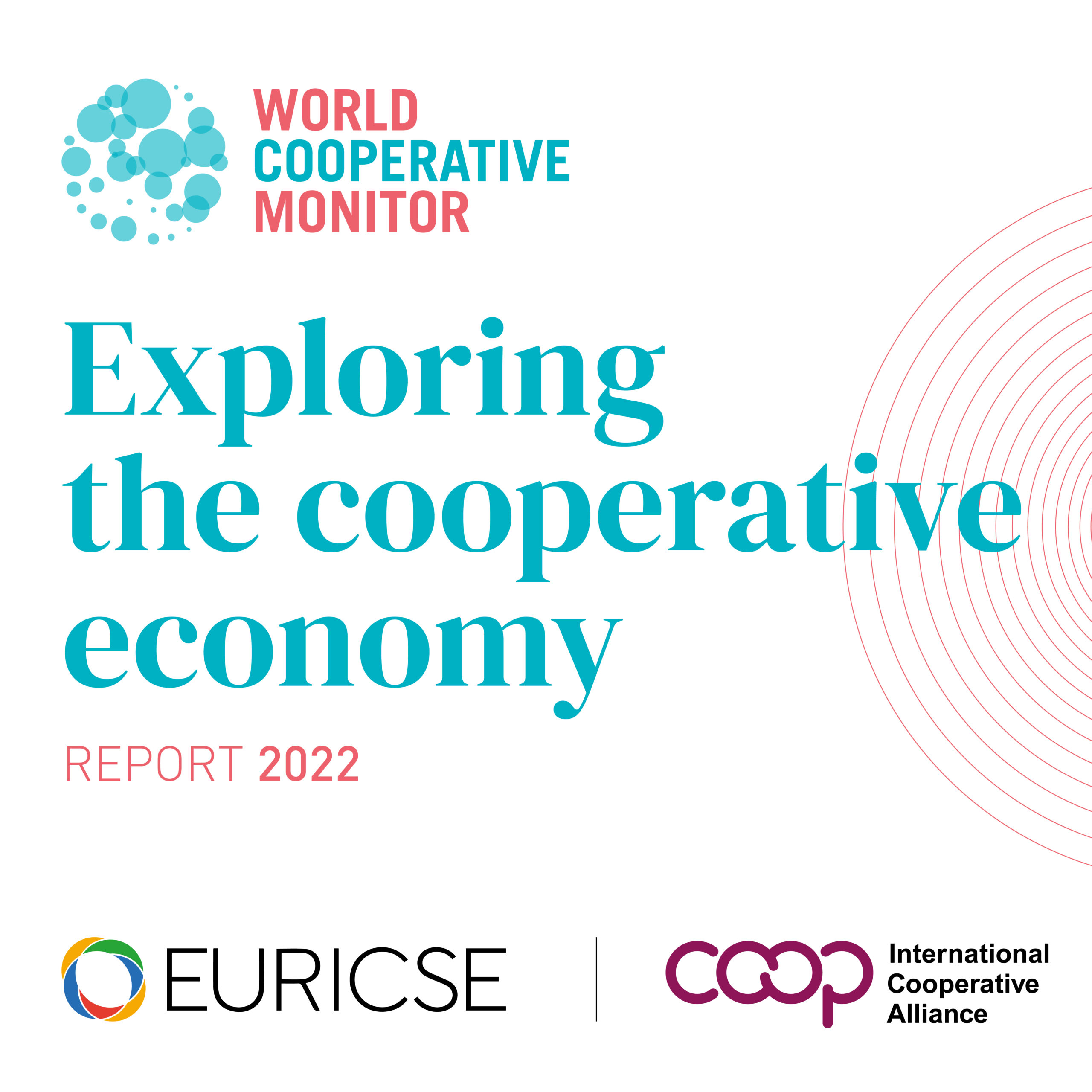World Cooperative Monitor 2022 Top 300 ranking released with a focus on the new challenge of digitalization
The International Cooperative Alliance (ICA) and the European Research Institute on Cooperative and Social Enterprises (Euricse) released the 2022 edition of the World Cooperative Monitor (WCM). The Report, which was launched during a webinar in collaboration with the ICA International Cooperative Entrepreneurship Think Tank (ICETT), contains the much-anticipated Top 300 rankings of the world’s largest cooperatives and mutuals and a special focus on the challenges of digitalization.
DISCOVER THE WCM
This year’s report is the 11th edition and marks the second decade of the project. It provides a list of the worlds’ largest 300 cooperatives and mutuals, or groups of cooperatives and mutuals, and an analysis of the economic sectors. Each year the World Cooperative Monitor produces a robust database that shows not only the economic importance of the cooperative business model, but also the global impact cooperatives and mutuals have on their members and communities. This is accomplished by building on years of research and data collection, and continually refining and improving the methodology to produce an annual WCM.
The in-depth research and collaboration to produce this report continues to provide the cooperative movement with a significant tool to evaluate its own positioning and highlights the importance of cooperation to the public and policy-makers around the world.
Focus 2022 – Large cooperatives and digitalization
This year’s report features a chapter focused on the challenges cooperatives are facing in the evolving world of digitalization. The last two editions of the WCM revealed the impact of COVID 19 on the cooperative community. The team sought to investigate how the pandemic prompted the use of digital tools, particularly as it pertains to member engagement and the cooperative identity. The results, found in a dedicated chapter in the WCM, discusses how much these tools were used, and the pros and cons of moving towards increased digitalization.
The 2022 Top 300
The Top 300 cooperatives and mutuals in the world report a total turnover of more than two trillion USD (2,171 billion USD), based on 2020 financial data. These organizations operate in various economic sectors, with Insurance (101 enterprises) and Agriculture (100 enterprises) leading the list. Wholesale and Retail Trade represent the third biggest economic sector (59 enterprises) in the ranking.
In the Top 300 ranking based on turnover, on the podium are two financial and one commercial enterprise. As was the case last year, the first two positions belong to the French Groupe Crédit Agricole (88.97 Billion USD turnover in 2020) and the German co-op REWE Group (77.93 Billion USD turnover in 2020). Rising to third place is the Cooperative Financial Network Germany – BVR (58.02 Billion USD turnover in 2020). Most of the Top 300 enterprises are from the most industrialized countries such as the USA (71 enterprises), France (42 enterprises), Germany (31 enterprises) and Japan (22 enterprises).
In the Top 300 ranking based on the ratio of turnover over gross domestic product (GDP) per capita as they did last year, two Indian producer cooperatives reach the first and second positions: The Indian Farmers Fertiliser Cooperative (IFFCO) and Gujarat Cooperative Milk Marketing Federation Limited. In third place is the French Groupe Crédit Agricole.
Leading the sector rankings based on turnover are:
- Agriculture and Food Industries: Zen-Noh (Japan)
- Industry and Utilities: Corporación Mondragón (Spain)
- Wholesale and Retail Trade: REWE Group (Germany)
- Insurance: Nippon Life (Japan)
- Financial Services: Groupe Crédit Agricole (France)
- Education, Health and Social Work: Sistema Unimed (Brazil)
- Other services: OBOS BBL (Norway)
As Bruno Roelants, Director-General of the ICA, said: « Thanks to the cooperative business model which is based on democratic participation and control, we can see how to take advantage of the positive effects of digitalization and mitigate the negative ones ».
Gianluca Salvatori, Euricse’s Secretary General, speaking to the importance of measuring the size of the cooperative economy said: «We are experiencing an exciting new season of visibility for the social economy. All over the world, initiatives that give visibility to this approach to economic activities are multiplying: from the European Social Economy Plan to the OECD Recommendation, and the ILO Resolution. It is therefore increasingly important that the social economy and its actors, including cooperatives, also be recognized for the scale of their impact. This is a further confirmation and challenge for the WCM to help build a more accurate understanding of the social economy, specifically for the cooperative sector».
